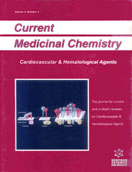Abstract
The urocortins, together with corticotropin releasing hormone (CRH), have a long evolutionary pedigree. In the brain, CRH largely mediates anxiogenic effects associated with the stress response, while the urocortins are concerned with adaptive and coping behaviour. The urocortins, in particular, are also expressed in peripheral sites, including the heart. Here, they may play an autocrine / paracrine role, since CRH-R2 receptor subtypes, which preferentially bind the urocortins, are also expressed in the heart. Endogenous cardiac urocortin expression is enhanced by ischaemia / reperfusion injury in vitro, and addition of exogenous urocortins reduces cell death caused by ischaemia / reperfusion in vitro, ex vivo and in vivo. In the isolated perfused heart, urocortin improves haemodynamic recovery, and partially prevents the reduction in high energy phosphates following ischaemia / reperfusion. Urocortin-mediated cardioprotection involves several mechanisms, including increased expression of Kir6.1 KATP channels and HSP90, although other as yet poorly understood mechanisms have also been implicated. Moreover, there is early data suggesting that urocortin has beneficial haemodynamic effects in an ovine model of heart failure, and further studies of the value of both endogenous and exogenous urocortins in the compromised heart are clearly needed. In man, there is suggestive, though indirect, data, that urocortin may also provide an endogenous myocyte salvage mechanism against iatrogenic ischaemia / reperfusion injury associated with bypass surgery. These experimental studies suggest that assessment of the clinical use of urocortins as direct and / or cardioplegic therapies in ischaemia / reperfusion, and maybe heart failure, should be actively pursued.
Keywords: urocortin, corticotropin releasing factor, heart, ischaemia-reperfusion injury, heart failure, cardiac hypertrophy, signal transduction
 3
3











